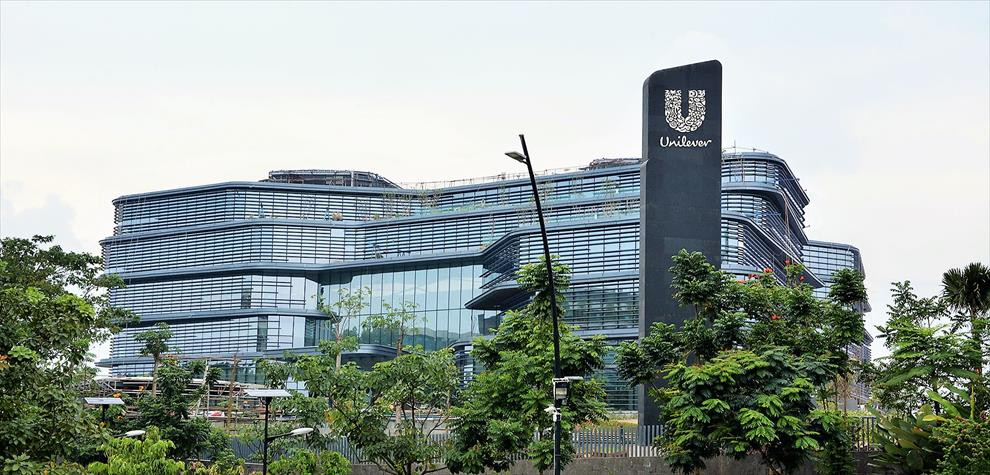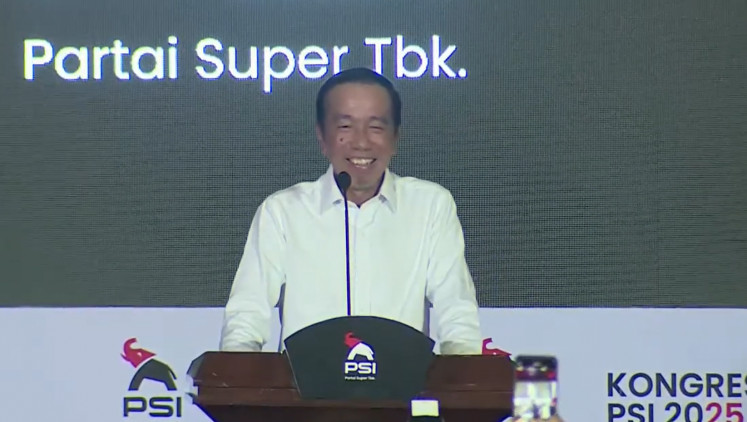Popular Reads
Top Results
Can't find what you're looking for?
View all search resultsPopular Reads
Top Results
Can't find what you're looking for?
View all search resultsUnilever Indonesia’s profit down 6.8% amid soaring input costs
Ira Noviarti, president director at Unilever Indonesia, cited the surge in commodity and fuel prices as the reason for this trend.
Change text size
Gift Premium Articles
to Anyone
Aditya Hadi
The Jakarta Post/Jakarta
PT Unilever Indonesia, a major manufacturer of fast-moving consumer goods (FMCG), saw its net profit drop 6.8 percent year on year (yoy) to Rp 5.36 trillion (US$354.6 million) in 2022 amid increased input costs.
The company’s cost of goods sold (COGS) jumped by more than 11 percent yoy to Rp 22.15 trillion in 2022. Ira Noviarti, president director at Unilever Indonesia, cited the surge in commodity and fuel prices as the reason for this trend.
In addition, Unilever’s marketing expenses rose 7.5 percent yoy to Rp 8.45 trillion in 2022 with around a third going to advertising and marketing research.
"Despite challenges stemming from soaring commodity and fuel prices, we still managed to increase our competitiveness with a larger market share in 2022," Ira said in a statement on Thursday.
The effects of higher spending were felt in the home and personal care segment, which accounted for more than two thirds of Unilever's sales last year. Income from the segment dropped 19.1 percent yoy, according to the company’s report.
Meanwhile, the company saw income from the food and refreshment segment surge by 33.4 percent yoy.
Overall, its net sales rose by 4.2 percent yoy to Rp 41.22 trillion last year.
Desy Israhyanti, an analyst from Pilarmas Investindo, told Kontan on Thursday that this year, too, would be challenging for Unilever, amid prolonged high fuel and commodity prices as well as projected higher marketing spending.
But she expected the pressure on Unilever’s performance to subside this year, as consumer spending in Indonesia was expected to improve this year.
Unilever’s stock price was down 8.4 percent at closing time on Friday at Rp 4,580 apiece, compared to Rp 5,000 at the close of market the day before.
Retail sales
A Bank Indonesia (BI) survey has forecast the retail sales index will rebound, marked by 1.7 percent yoy growth in January after slower growth each month since July last year.
The growth in January was much higher than the 0.7 percent yoy figure booked last December, while also surpassing November’s growth of 1.3 percent yoy.
“The rebound in January was driven mainly by food, drinks and tobacco,” Erwin Haryono, BI spokesperson said in a statement last week.
On a monthly basis, the retail sales projection in January is expected to dip by 2.1 percent compared with the previous month, which BI noted was driven mainly by the communication devices, fashion and recreation categories.
"It is a seasonal decline after a surge in demand during the Christmas and New Year period," Erwin said.
Meanwhile, the consumer confidence index continued to strengthen to 123 points in January, up from last December’s 119.9 points, BI data show.
The figure was also the highest since August last year. The biggest rise in the confidence index came from people who spend between Rp 1 million and Rp 2 million per month, the lowest spending amount in the survey, BI data show.
It is the highest confidence point in that segment since January 2020. BI said in the survey that the increase in consumer confidence was in line with many consumers feeling more optimistic about the job market and business activities in the next six months.
Both saw increases to 131.4 and 132.6 points, respectively, which were also the highest since August last year.










